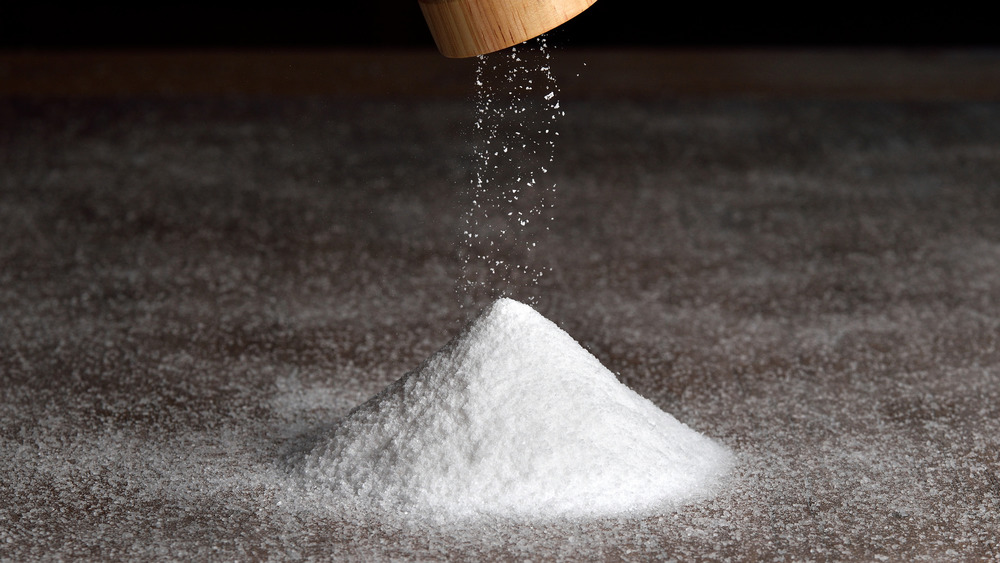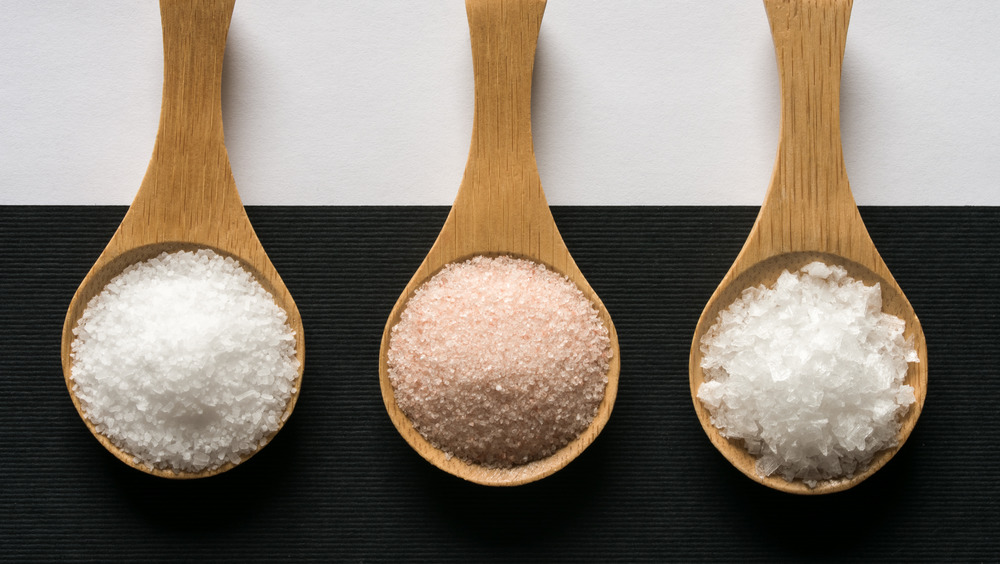The Real Reason It's So Hard For Americans To Avoid Salt In Their Diets
Salt and pepper are two essential seasoning ingredients that can make any meal taste profoundly better. It's been proven that our cells need salt to function (via The Naked Scientists). It's also undeniable that salt is a versatile and useful add-on that works wonders for dishes that would otherwise be too bland, but it does need to be enjoyed in moderation. In fact, the Food and Drug Administration (FDA) advises you to restrict your sodium intake to no more than 2,300 milligrams each day (ideally, you should actually consume less than that). Excessive sodium intake has been linked to serious health concerns such as hypertension, stroke, and heart disease.
What's worth exploring is why salt continues to play such an important role in the average American's diet despite the fact that excessive sodium consumption has been proven to be linked to several major health conditions. According to a piece by the Washington Post, the reasons are more obvious than you'd guess at first. Here's what you need to know about the prevalance of salt in American meals.
Too much salt? Blame packaged foods
Well, the problem is that there is salt everywhere you look. As the Washington Post explains, over 70 percent of salt consumption among Americans can be traced to pre-packaged and prepared food items. Gulp. "We are awash in foods that are high in sodium," Thomas Frieden, former director of the CDC, explained to The Washington Post. "Sodium reduction is one of the most neglected and under-implemented public health interventions. Yet, there is absolutely no doubt that excess sodium is resulting in deaths."
While the guidelines for salt consumption remain at 2,300 mg a day, the CDC reports that the average American consumes more than 3,400 mg of salt every day.
Simply put, sodium is everywhere we look and it's quite tricky to avoid it until we take matters into our own hands. From bread to meat, cereal, and canned goods, sodium is omnipresent and tough to stay away from. As Everyday Health advises, start by checking your food labels, prepare the majority of your meals, incorporate other spices into your food beyond salt, and buy fresh food instead of the packaged variety. With these tweaks, you can attempt to reduce the amount of sodium you're getting from packaged foods rather than the salt shaker.

